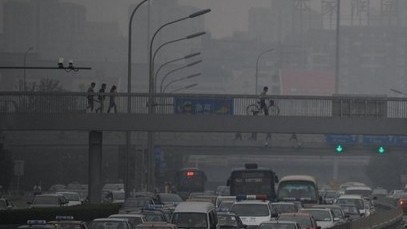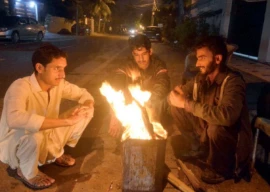
The seminar, held at the Urban Resource Centre, saw several panelists speak on the different factors destroying our environment and what should be done about it.
“Birds and frogs are an indicator of our environment,” Dr Khan continued, “And if frogs are getting extinct that means our biodiversity is getting extinct.”
Solid waste
“One man generates about half a kilogramme of solid waste per day,” he said. From the slums of the city to the most developed areas, there are heaps and piles of garbage and organic and inorganic solid waste that has no place to be dumped in or outside the city. “There is no landfill anywhere in Pakistan,” he pointed out, “One was to be made near Rawalpindi but the project stopped after the earthquake tragedy in 2005.”
Karachi’s solid waste is dumped in the outskirts of the city near some villages, from where the toxins accumulate and seep through the soil thus polluting our water and lines, he said.
Highlighting multiple environmental issues, Dr Khan stressed that the government needs to do more to overcome the problems and to raise public awareness.
The rain drains in the city are now covered with heaps of solid waste that not only pollute the surrounding areas but are usually so tightly packed that they choke the drains.
Meanwhile, the Lyari River, which was one of the city’s rain drains, now has houses built on its banks, lamented the doctor.
Hospital and industrial waste
The city has around 500 hospitals and none of them have a proper waste disposal mechanism.
“We dump 400 million tons of water in the sea without treatment,” said Dr Khan, “The amount is even greater than that deposited in India’s Ganges River.”
He said that industrial waste is one of the biggest environmental pollutants. “There are almost 4,000 industrial units in the city that discharge about 2,000 toxic chemical by-products.”
These by-products are not just destroying the environment but are directly affecting people living in industrial areas,” Dr Khan told The Express Tribune.
He said that the environment is being degraded day by day due to haphazard growth, poverty and non implementation of existing laws.
These are the reasons that despite producing less waste than several developed countries like the US, UK, France and Germany, our country is suffering more from pollution than they are.
Supporting his observations, Ahmed Khan Sheedai, a social worker in Awami Colony, near Korangi, told The Express Tribune that there are people who have had to shift due to these hazards. Citing a personal example, Sheedai explained how a cardboard factory in the area was diffusing dust in the air and causing eye allergies among the residents. “All the residents united and complained about that factory, which was later closed with the cooperation of the CDGK.”
According to Dr Khan, public awareness is the key requirement to fight the looming environmental disaster that can have long standing effects on our future generations.
The 300 laws on environment are futile since the authorities do not implement them and the public is simply not aware of their existence, he added.
Ghulam Kibria, coordinator of a private NGO, National Forum for Environment and Health, said that they go to schools and get students to participate in plantation projects. “We believe that spreading awareness at a young age is the solution to a pollution-free environment,” he said.
Published in the Express Tribune, June 11th, 2010.
1729161093-0/liam-(4)1729161093-0-405x300.webp)








1732084432-0/Untitled-design-(63)1732084432-0-270x192.webp)







COMMENTS (1)
Comments are moderated and generally will be posted if they are on-topic and not abusive.
For more information, please see our Comments FAQ